Essential A
$19.99 — or subscribe and save 5%
Essential A provides an excellent source of supplemental vitamin A. Vitamin A is a fat-soluble vitamin necessary for growth, bone development, vision, hormone receptor function, cellular health, immune function, and the integrity of epithelial and mucosal surfaces.
Key Benefits & Actions:
- Supports Healthy Immune Function
- Promotes Healthy Skin and Mucous Membranes
- Provides Vitamin A Repletion in Cases of Deficiency
Does Not Contain:
Wheat, gluten, soy, animal or dairy products, fish, shellfish, peanuts, tree nuts, egg, ingredients derived from genetically modified organisms (GMOs), artificial colors, artificial sweeteners, or artificial preservatives.
Directions:
Take one capsule daily, or as directed by your healthcare practitioner.
Consult your healthcare practitioner prior to use. Individuals taking medication should discuss potential interactions with their healthcare practitioner.
All Unique Verve Formulas Meet or Exceed cGMP Quality Standards and are manufactured and stored in the temperature and humidity regulated facility in USA.
cGMP = Current Good Manufacturing Practice certification means that every aspect of all Unique Verve manufacturing process has been examined, including laboratory/testing methods (for stability, potency and product formulation)
Made and Packaged in the USA
SAFETY:
Vitamin A is an essential nutrient required for many physiological functions; however, like other fat-soluble vitamins, it is capable of building to toxic levels when consumed in excess. Vitamin A is stored in the body, primarily in liver tissue, as retinyl ester. Because of the potential for toxicity, the Institute of Medicine’s Food and Nutrition Board set an upper level (UL) of 3,000 mcg retinol activity equivalents (RAE), or 10,000 IU, in 2001. This value was based on research looking at teratogenicity for women of childbearing age and at potential for liver toxicity in all populations.
Although healthy fetal development requires sufficient vitamin A intake, levels in excess of 3,000 mcg RAE/day during early pregnancy have been linked to birth defects. Because vitamin A excess and deficiency have the potential for increasing the risk of birth defects, particular caution should be taken with high-potency vitamin A products during pregnancy or when trying to conceive.
Research at the time the UL was set suggested a link between changes in bone density and high vitamin A intake, but the findings were confounding and therefore not considered. Since that time, researchers have published limited experimental data suggesting that vitamin A, when taken at levels above the UL, may affect the development of bone remodeling cells and may stimulate bone matrix degradation. Prospective research has suggested that vitamin A in excess of the UL may be linked to an increased risk of hip fracture. As with prenatal development, too little or too much can impact bone health. Sensitive populations can include but are not limited to postmenopausal women and patients with a history of bone density issues or frequent fractures. Further research is needed to update monitoring protocols for practitioners prescribing
vitamin A supplementation to ensure optimal serum retinol levels. Dose levels beyond the UL can be necessary in some populations to prevent or reverse health consequences from vitamin A deficiency. Due to potential safety concerns in certain populations, Essential A is labeled with a precautionary statement and is not endorsed for long-term use.
Supplement Facts:
Serving Size 1 Capsule
Servings Per Container 60
Ingredients:
Vitamin A (as retinyl palmitate)
Other Ingredients:
Microcrystalline cellulose, capsule (hypromellose and water), ascorbic palmitate, and silica.
LEGAL DISCLAIMER
*Disclaimer: Statements made regarding dietary supplements, or products sold through this website have not been evaluated by the Food and Drug Administration. They are not intended to diagnose, treat, cure, or prevent any disease.You should consult with a healthcare provider before beginning any dietary supplements.
Statements regarding dietary supplements have not been evaluated by the FDA and are not intended to diagnose, treat, cure, or prevent any disease or health concerns.
Discussion
Vitamin A is a fat-soluble vitamin that has long been recognized as an essential micronutrient for growth and bone development, eye health/ night vision, cellular proliferation and differentiation, immune function, reproduction, and the integrity of cells that line the epithelial and mucosal surfaces. The generic term “vitamin A” encompasses a number of related metabolic compounds: retinyl esters and retinol (which is converted to retinoic acid) are considered to be preformed vitamin A and are herein referred to as vitamin A.
Vitamin A supplementation plays a role in conditions that challenge the immune system and impair cellular health. Unique Verve’s Essential A is formulated to provide support for healthy immune function and to promote healthy skin and mucous membranes.
Immune Support
Research supporting the foundational role of vitamin A in immune system function dates back to the 1920s. Modern molecular and animal studies attribute the value of vitamin A to its involvement in maintaining mucosal barriers that line the airways, digestive tract, and urinary tract. The neutrophils, macrophages, and natural killer cells in these tissues provide the body’s first line of immune defense. Vitamin A also plays a role in cellular differentiation and proliferation and in the generation of antibody responses to T-cell dependent and independent antigens.
Vitamin A metabolites are involved in promoting differentiation of regulatory T cells (Tregs), a subpopulation of T cells involved in maintaining cellular tolerance to self-antigens and regulating autoimmune response. In vitro studies suggest that vitamin A contributes to enhancing the stability and functionality of Tregs under inflammatory conditions. The changes in mucosal epithelial regeneration and immune function attributed to vitamin A activity may account for the increased mortality seen in vitamin A-deficient populations throughout the world. However, although the beneficial effects of vitamin A on immune function are well-established at the molecular level, more research is needed to elucidate ongoing therapeutic effects.
Epithelial and Mucous Membranes
The function of vitamin A in the maintenance of epithelial membranes is crucial. With essential roles in cell morphology and as a cell differentiation enhancer, vitamin A is an integral part of nonspecific, innate immunity function when intestinal and respiratory tissues require defense against invaders. It has been suggested that vitamin A also improves the mechanistic defense of oral mucosa, increases the integrity of intestinal mucus barrier, and maintains the morphology and amount of urothelial cells. Under conditions of vitamin A deficiency, epithelial cells shrink, leading to a wide variety of symptoms such as a decreased resistance to pathogens that leaves cells vulnerable due to impaired function.
Vitamin A retinoids also regulate the growth and differentiation of many cell types within skin. In distressed tissue, vitamin A appears to stimulate epidermal turnover, increase the rate of re-epithelialization, and restore epithelial structure. Additionally, retinoids appear to have the ability to counteract the inhibitory effects of steroids in impaired tissues. In a double-blind, placebo-controlled study in animals, it was suggested that retinoids stimulate the expression of transforming growth factor-beta (TGF-beta) and insulin-like growth factor (IGF) and increase collagen production. Mechanisms continue to be elucidated in order to increase the understanding of the beneficial effects of vitamin A and its metabolites on skin. Vitamin A continues to be used both orally and topically for a wide variety of skin issues.
Vitamin A Repletion in Cases of Deficiency
Vitamin A deficiency is common in many developing countries, and health consequences are most commonly seen during high-nutritional- demand life stages, such as infancy, childhood, pregnancy, and lactation. The most common symptom of deficiency is an inability to see in low light, and this can progress to further visual complications if not corrected.
Other symptoms can include frequent bouts of impaired immune health, delayed growth, skin issues, and infertility. Although most people in the United States get enough vitamin A from their diet, certain groups are more susceptible to deficiency and have impaired storage or transport of vitamin A due to a variety of health factors. Individuals who suffer from poor absorption of lipids due to bowel inflammation or submaximal pancreatic or biliary secretions are at particular risk. Oral ingestion of vitamin A is effective for replenishing and improving from a diet lacking in vitamin A or in individuals who cannot fully metabolize what they consume.
SAFETY
Vitamin A is an essential nutrient required for many physiological functions; however, like other fat-soluble vitamins, it is capable of building to toxic levels when consumed in excess. Vitamin A is stored in the body, primarily in liver tissue, as retinyl ester.
Because of the potential for toxicity, the Institute of Medicine’s Food and Nutrition Board set an upper level (UL) of 3,000 mcg retinol activity equivalents (RAE), or 10,000 IU, in 2001. This value was based on research looking at teratogenicity for women of childbearing age and at potential for liver toxicity in all populations.
Although healthy fetal development requires sufficient vitamin A intake, levels in excess of 3,000 mcg RAE/day during early pregnancy have been linked to birth defects. Because vitamin A excess and deficiency have the potential for increasing the risk of birth defects, particular caution should be taken with high-potency vitamin A products during pregnancy or when trying to conceive.
Research at the time the UL was set suggested a link between changes in bone density and high vitamin A intake, but the findings were confounding and therefore not considered. Since that time, researchers have published limited experimental data suggesting that vitamin A, when taken at levels above the UL, may affect the development of bone remodeling cells and may stimulate bone matrix degradation.
Prospective research has suggested that vitamin A in excess of the UL may be linked to an increased risk of hip fracture. As with prenatal development, too little or too much can impact bone health. Sensitive populations can include but are not limited to postmenopausal women and patients with a history of bone density issues or frequent fractures. Further research is needed to update monitoring protocols for practitioners prescribing vitamin A supplementation to ensure optimal serum retinol levels.
Dose levels beyond the UL can be necessary in some populations to prevent or reverse health consequences from vitamin A deficiency. Because the safety of vitamin A is dependent on both the daily level of intake and duration of consumption, due to potential safety concerns in certain populations, Essential A is label nary statement and is not endorsed for long-term use.
REFERENCES
- Vitamin A as an anti-infective agent: https://www.ncbi.nlm.nih.gov/pmc/articles/PMC2456524/
- Vitamin A is a key regulator for cell growth, cytokine production, and differentiation in normal B cells: https://pubmed.ncbi.nlm.nih.gov/1429735/
- Seeing through the dark: new insights into the immune regulatory functions of vitamin A: https://pubmed.ncbi.nlm.nih.gov/25808452/
- Vitamin A, immunity, and infection: https://pubmed.ncbi.nlm.nih.gov/7811869/
- Role of vitamin A in the immune system: https://www.ncbi.nlm.nih.gov/pmc/articles/PMC6162863/
- Critical role of all-trans retinoic acid in stabilizing human natural regulatory T cells under inflammatory conditions: https://pubmed.ncbi.nlm.nih.gov/25099355/
- Vitamin A, infection, and immune function: https://pubmed.ncbi.nlm.nih.gov/11375434/
- The effect of vitamin A on epithelial integrity: https://pubmed.ncbi.nlm.nih.gov/10466169/
- Impact of retinoic acid on immune cells and inflammatory diseases: https://pubmed.ncbi.nlm.nih.gov/30158832/
- Modulation of intestinal immune and barrier functions by vitamin A: implications for current understanding of malnutrition and enteric infections in children: https://pubmed.ncbi.nlm.nih.gov/30134532/
- Effects of steroids and retinoids on wound healing: https://pubmed.ncbi.nlm.nih.gov/11074878/
- The role of vitamin A in wound healing: https://pubmed.ncbi.nlm.nih.gov/31389093/
- Vitamin a metabolism, action, and role in skeletal homeostasis: https://pubmed.ncbi.nlm.nih.gov/23720297/
- The relationship between vitamin A and risk of fracture: meta-analysis of prospective studies: https://pubmed.ncbi.nlm.nih.gov/24700407
- Vitamin A supplementation is effective for improving urinary tract infections and reducing renal scarring: https://pubmed.ncbi.nlm.nih.gov/30670279/
Only logged in customers who have purchased this product may leave a review.

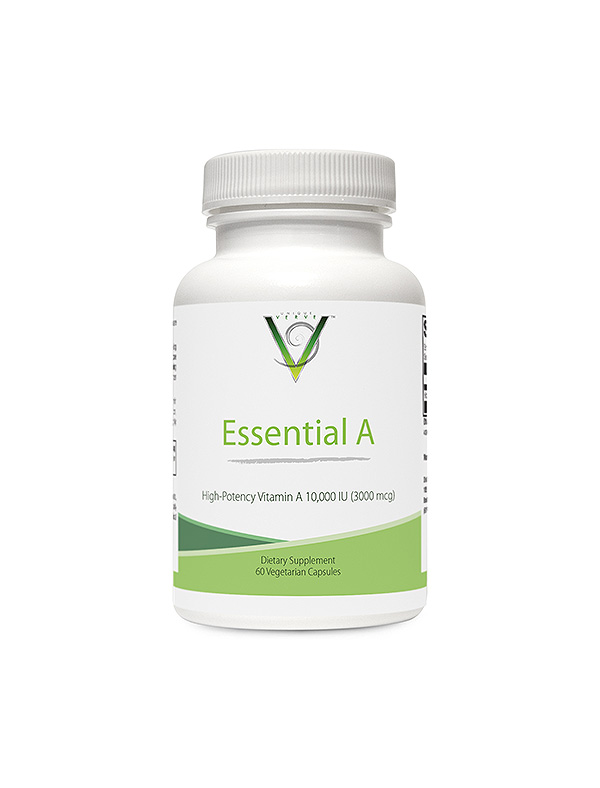
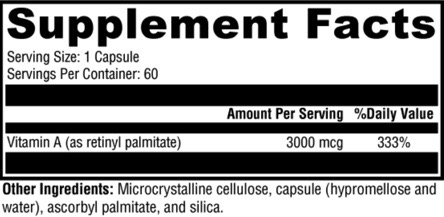
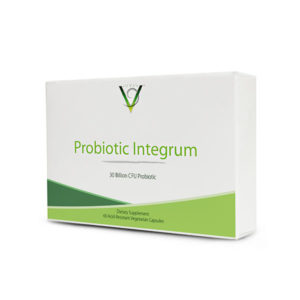
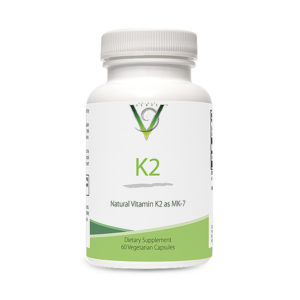
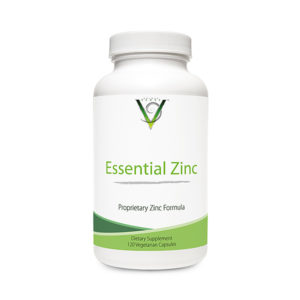


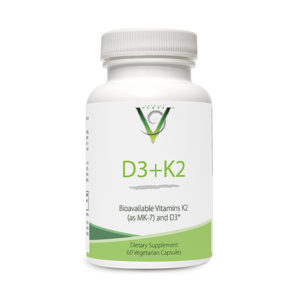
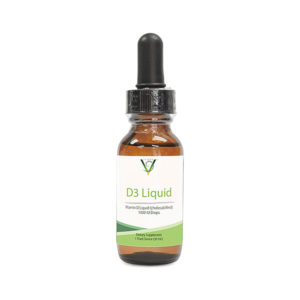
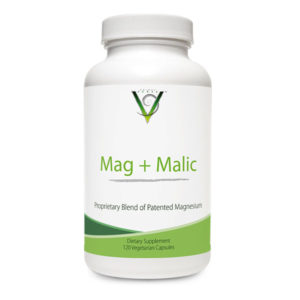

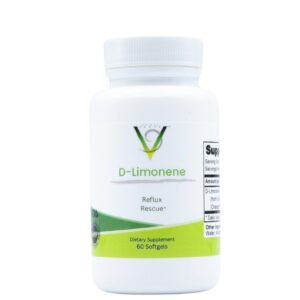
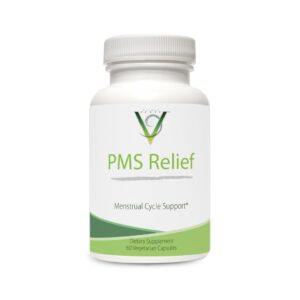
Reviews
There are no reviews yet